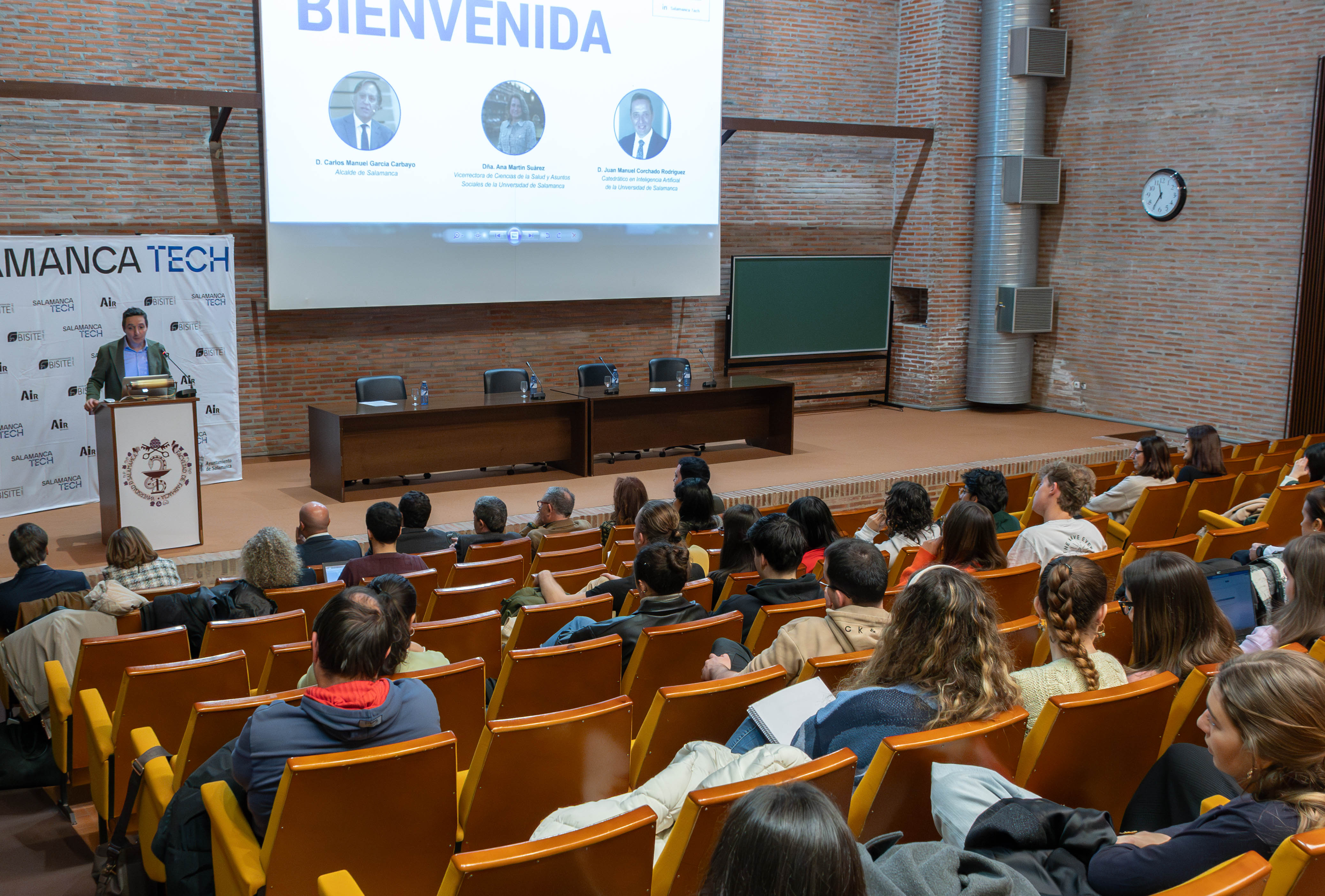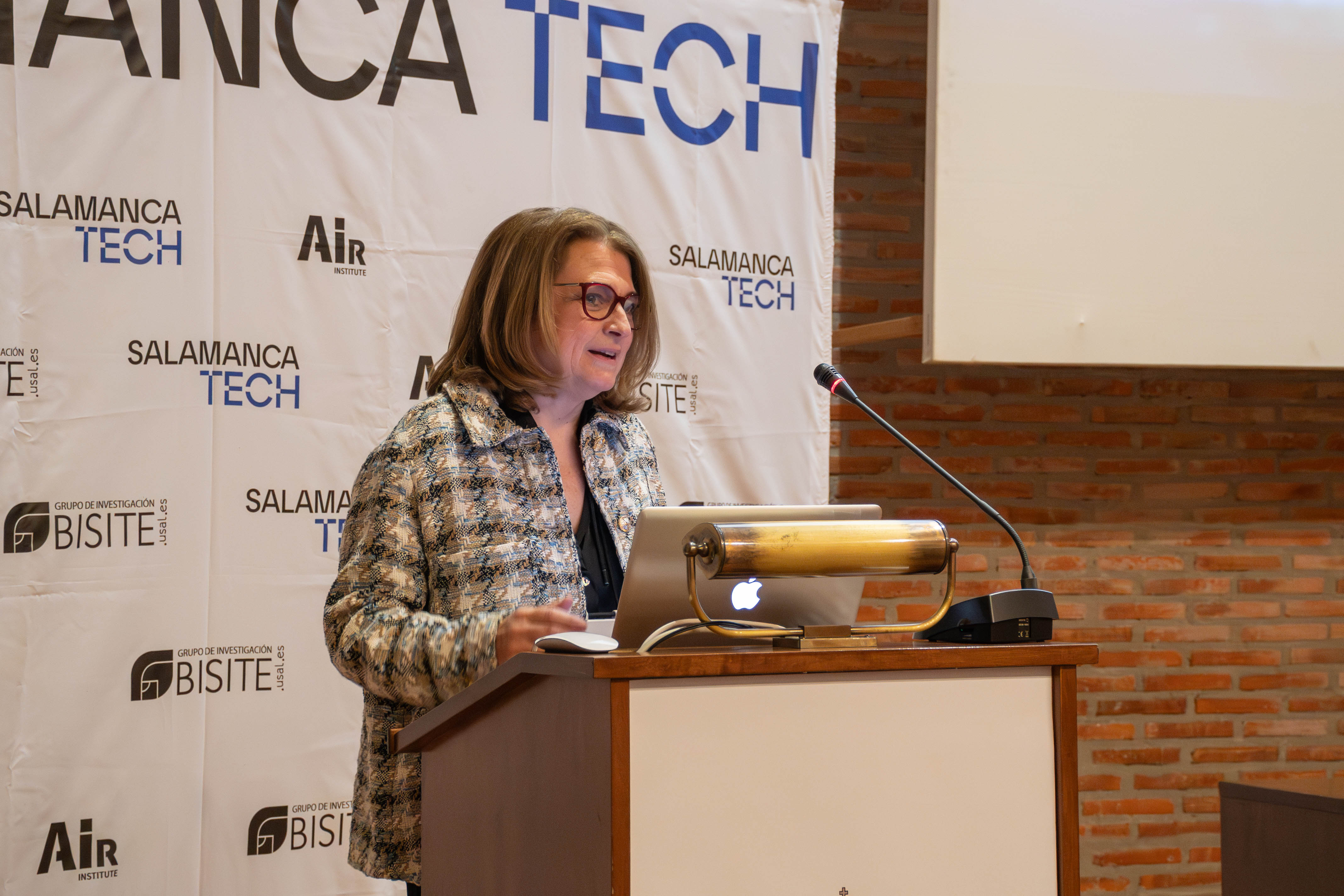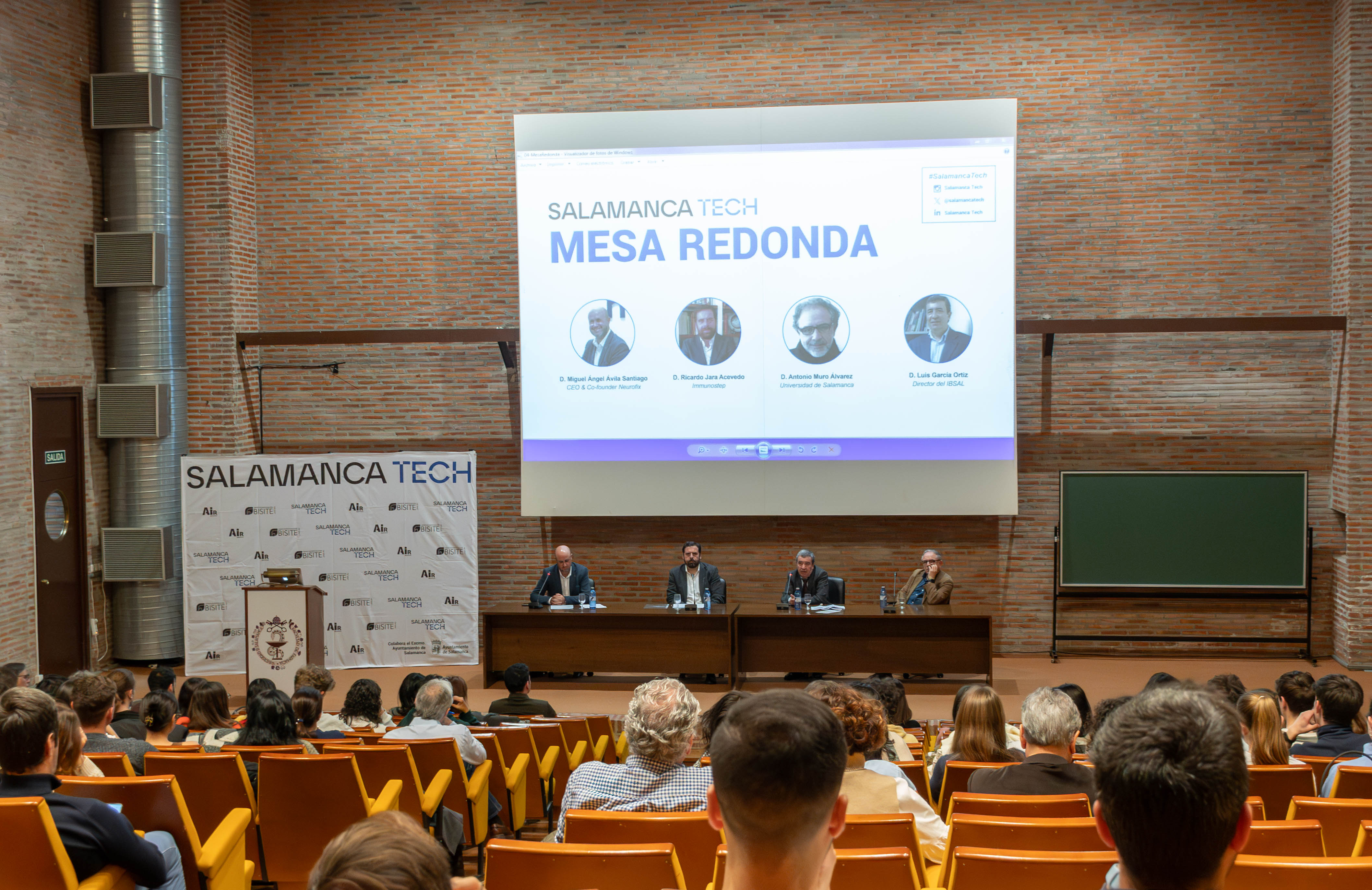USAL brings entrepreneurship opportunities closer to Pharmacy and Biotechnology students through "Salamanca Tech"
The Salamanca Tech initiative opens up new opportunities for young people to develop their life projects in our city. This has been affirmed by the Mayor, Carlos García Carbayo; the Professor of Artificial Intelligence, Juan Manuel Corchado; and the Vice-Rector of Health Sciences, Ana Martín, during the opening of the conference "Salamanca Tech. Biotechnology and entrepreneurship: Cultivating innovative ecosystems with spinoffs", held at the Faculty of Pharmacy of the University of Salamanca.

On this occasion, the conference was aimed at students taking degrees in Pharmacy, Biotechnology and the double degree in Biotechnology and Pharmacy, and brought students closer to the formula for success that results from combining biotechnology and entrepreneurship, according to the participants in the roundtable Ricardo Jara, CEO of Inmunostep; Antonio Muro, Professor of Parasitology at the University of Salamanca; and Luis García, Director of the Institute of Biomedical Research of Salamanca (IBSAL), moderated by Miguel Ángel Ávila, CEO and co-founder of Neurofix.
In this regard, Carlos García Carbayo stressed that the City Council's commitment to talent —which revolves around a knowledge-based model, the bio-health industry, and the green economy— facilitates the formation of companies that stem from academic projects with innovative potential. With the Salamanca Tech city strategy, the new industrialisation of Salamanca is based on a network of infrastructures specialised in the transfer of R&D to the productive sector, with the capacity to promote the development of new companies, attract new national and international companies to Salamanca; and with the capacity to improve the competitiveness of existing companies, opening the doors to new sectors in emerging markets.
Among these infrastructures, the Mayor highlighted the Biotechnology, Bioengineering and Health Business Incubator (ABIOINNOVA), which will start operating this year with projects in their different phases of pre-incubation, incubation and acceleration, to generate an impact on the city in terms of economy and highly qualified jobs.
"We are committed to talent and research to continue advancing in a Salamanca that is a leader in healthcare advances. At the same time, we want to promote and stimulate employment opportunities and the creation of prosperity for the development and growth of the economy of Salamanca, Castilla y León and Spain in the health sector," said Carbayo.
For his part, Juan Manuel Corchado, Professor of Artificial Intelligence at the University of Salamanca, stressed how technological advances are promoting the development of innovative ecosystems that boost economic growth and competitiveness at a global level, and gave as an example the case of the University of Salamanca Science Park and the future technology park with the City Council on the land of the former MercaSalamanca. "We offer you the possibility of being in charge of your future by becoming entrepreneurs or working in large pharmaceutical companies", said Corchado, highlighting how the creation of innovative ecosystems gives rise to successful projects such as those represented by Innmunostep, Neurofix and IBSAL.
In this regard, the Vice-Rector for Health Sciences, Ana Martín, underscored that there is "good harmony" between institutions with a view to making the most of the knowledge generated at the University and creating wealth and employment.

This was one of the issues highlighted by Ricardo Jara, CEO of Immunostep, a spinoff that was founded twenty years ago when, he acknowledged, there was no favourable ecosystem. "Now there is permeability between economics and biology," said Jara, asserting that the keys are infrastructure, funding and training. His words were endorsed by the Director of IBSAL, Luis Ortiz, who recalled that "before, research was disconnected from the next steps. Now, on the contrary, a platform is being created that includes transmission, innovation, and transfer". In his words, the current objective is to facilitate the task of researchers so that ideas "do not fall by the wayside due to a lack of support".
For his part, Professor Antonio Muro stressed the importance of "attracting" companies and for this, he said, "researchers have to offer them their knowledge". In this context, he gave as an example a project within the Infectious and Tropical Diseases Group and the BISITE Group to develop a portable, low-cost device to carry out studies in low-income countries. "Salamanca Tech is an excellent project and a great initiative for the future. Now it is essential to attract companies that would like to settle here and be part of it," said Antonio Muro.

Abioinnova, the bio-incubator that the City Council is completing on the Agri-Food Campus, will also be a mechanism to help young researchers. This was emphasised by Miguel Ángel Ávila, CEO of Neurofix, who moderated the event.
The members of the roundtable concluded that this is an "ideal" moment for the biotech sector in Salamanca.